Emma Stone had her first panic attack at seven years old. She was sitting at her friend’s house when an unsettling image presented itself to her.
“I thought the house was burning down,” the actress recalled during a 2015 interview with the Wall Street Journal. “I called my mom, and she brought me home, and for the next three years, it just would not stop.”
“I would ask my mom to tell me exactly how the day was going to be, then ask again 30 seconds later,” Emma continued. “I just needed to know that no one was going to die and nothing was going to change.”
Emma Stone has recently opened up about her mental health condition, describing anxiety as “very selfish”

Image credits: John Phillips/Getty Images
Speaking about her feelings with a mental health expert helped her feel calmer. Aged nine, she drew a picture in therapy of her standing next to a miniature-sized green monster, which symbolized anxiety. Above, she wrote, “I’m bigger than my anxiety!”
According to the World Health Organization, 1 in 8 people in the world live with a mental health condition, with anxiety and depressive disorders being the most common. There exist several different kinds of anxiety disorders, but they are all characterized by a feeling of excessive fear and worry and related behavioral disturbances.
Emma had her first panic attack at age seven and started going to therapy as a child

Image credits: The Late Show with Stephen Colbert
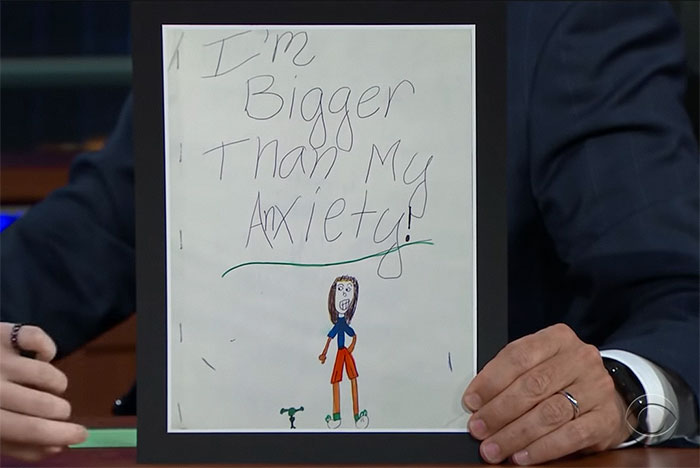
Image credits: The Late Show with Stephen Colbert
As Emma explained during an interview with Elle in 2018, her anxiety has a part to play in her refusal to use social media.
“I think it wouldn’t be a positive thing for me,” she said. “If people can handle that sort of output and input in the social media sphere, power to them.”
In addition to therapy, Emma found that acting provided a way to remain in the present moment, without worrying about the past or the future.
“You’re thinking about yourself a lot. You’re thinking about, ‘What’s going to happen to me? What have I said? What have I done?'” the actress explained
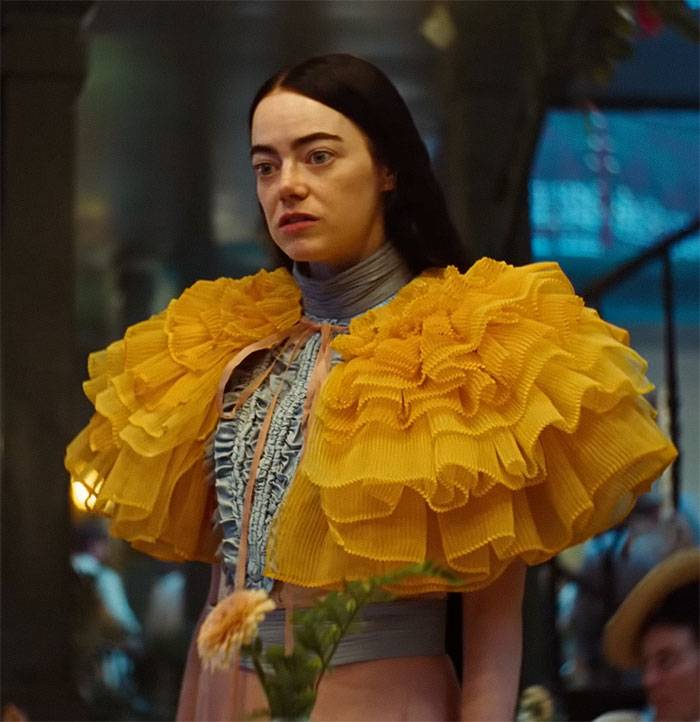
Image credits: SearchlightPictures
Recently, the 35-year-old star has opened up about her battle with anxiety while speaking with Variety about her latest film, Poor Things.
Her character, Bella Baxter, has no inhibitions or any concern for what other people think of her, a trait that Emma admires.
The star was asked, “I wonder if there’s something about that character that you thought, ‘Wouldn’t it be super fantastic to just have no shame or not be concerned about what others are thinking?'”
“I think that’s why I was so crazy about her,” Emma responded. “It’s the idea of not living with that self-judgment or shame, as you say, of the social contracts that you make as a child growing up.”
Emma says she admires her Poor Things character, Bella Baxter, for “not living with that self-judgment or shame”
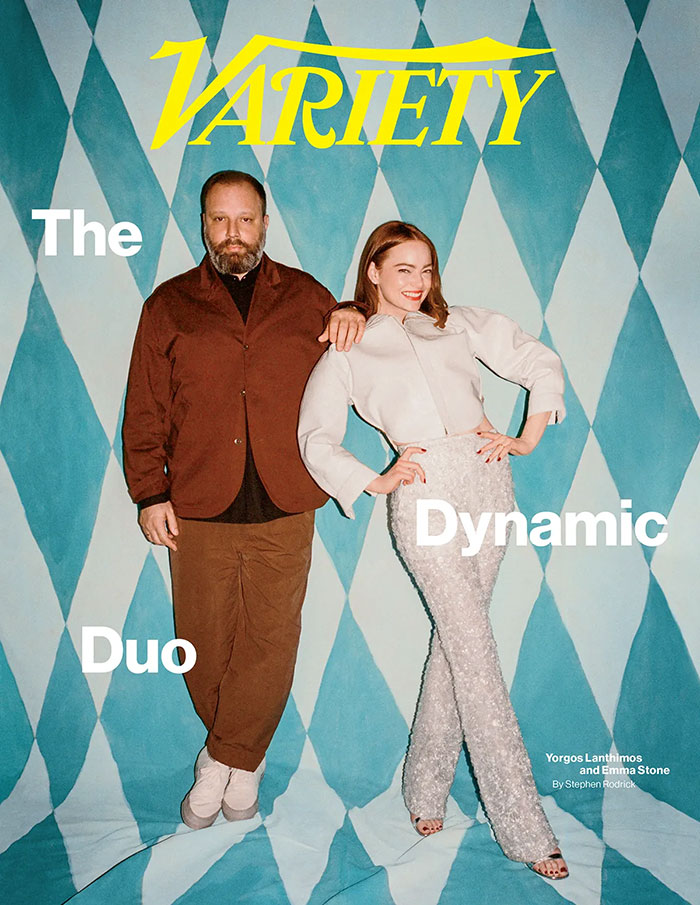
Image credits: variety
The Academy Award winner then spoke about her personal experience, which sharply contrasts the spontaneous and naive character she portrayed on the big screen.
“Part of the nature of anxiety is that you’re always watching yourself. In some ways — this is horrible to say — it’s a very selfish condition to have. Not to insult other people with anxiety — I still have it — but it’s because you’re thinking about yourself a lot.
“You’re thinking about, ‘What’s going to happen to me? What have I said? What have I done?’ Whereas Bella’s way of approaching the world, it’s just about experience. It’s just about how she feels about things.”
Emma also said that, over the years, she has learned to see her mental health problems as a “superpower”
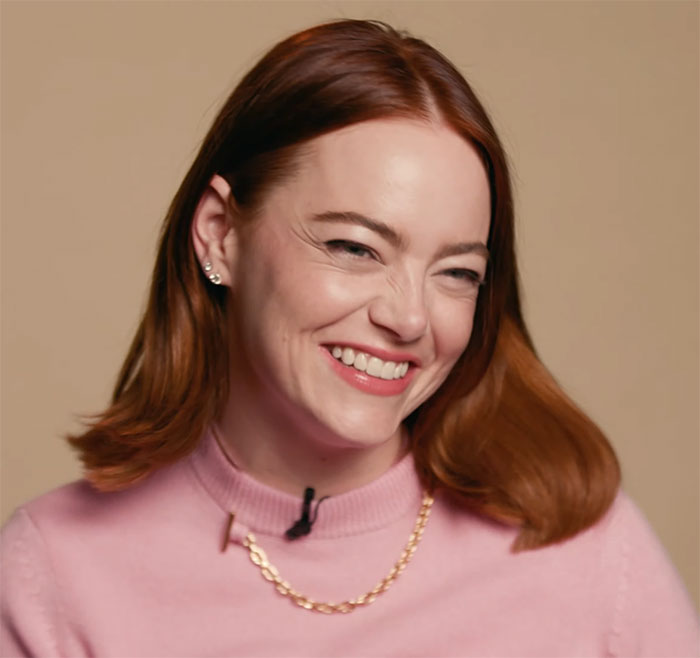
Image credits: Variety
The La La Land actress also spoke candidly about her problems with anxiety last month during an interview with NPR.
Emma shared that, over the years, she has learned to see it as “a superpower.”
“Just because we might have a funny thing going on in our amygdala, and our fight-or-flight response is maybe a little bit out of whack in comparison to many people’s brain chemistry, it doesn’t make it wrong,” she explained.
“It doesn’t make it bad. It just means we have these tools to manage.”
What’s more, she believes it can be “a gift” that people can learn to use to their advantage.
“If you can use all of those feelings in those synapses that are firing for something creative, or something that you’re passionate about, or something interesting, anxiety is like rocket fuel.”
People shared their personal experiences coping with anxiety and weighed in on whether it’s a “selfish” condition
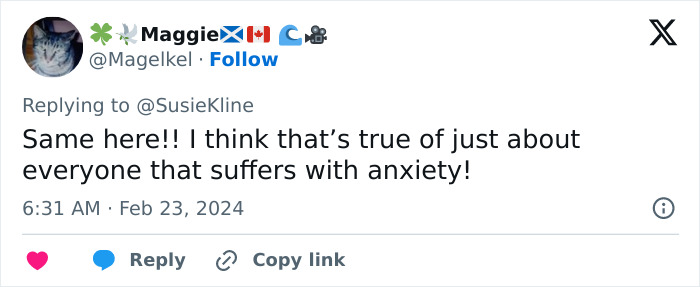
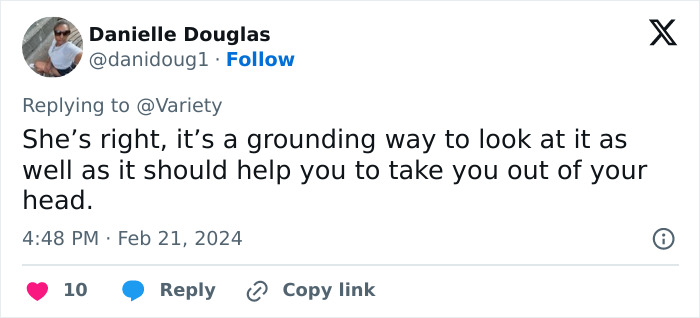
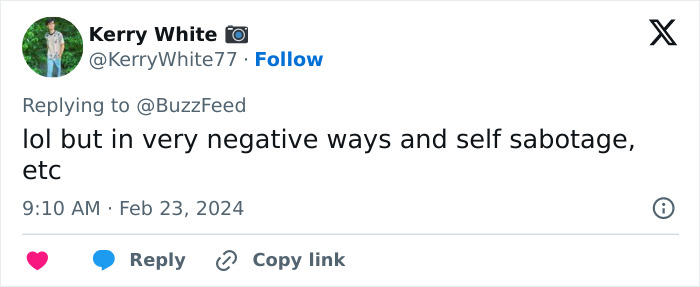
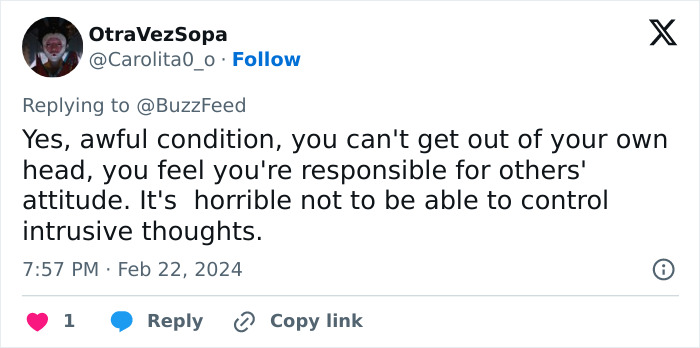
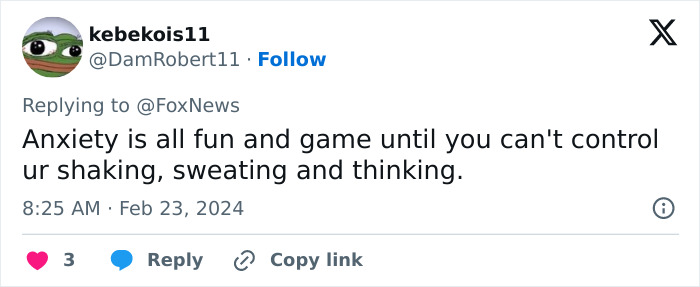
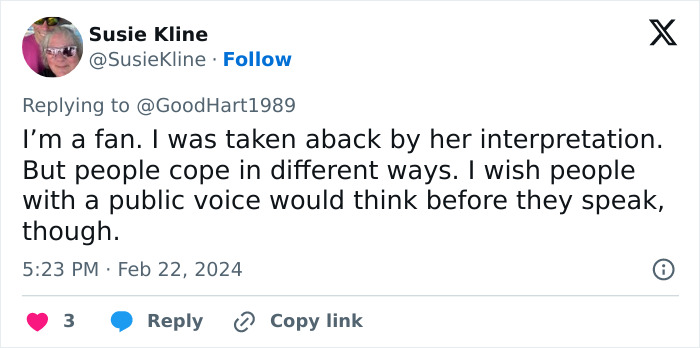
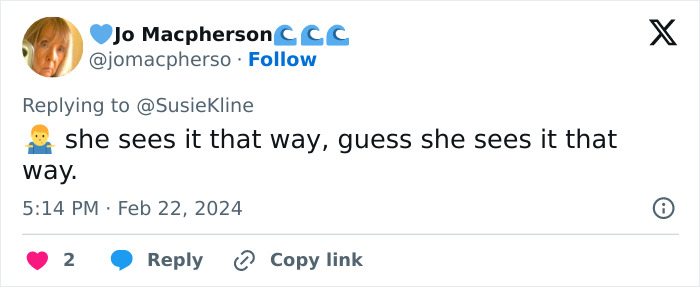
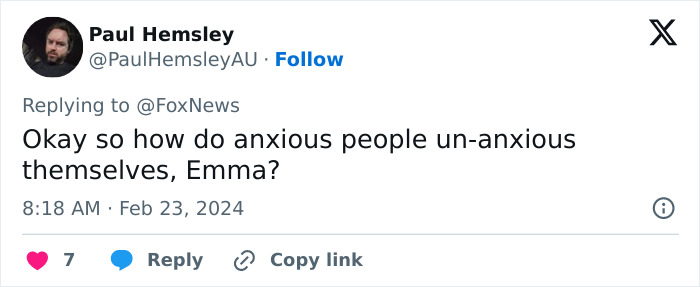
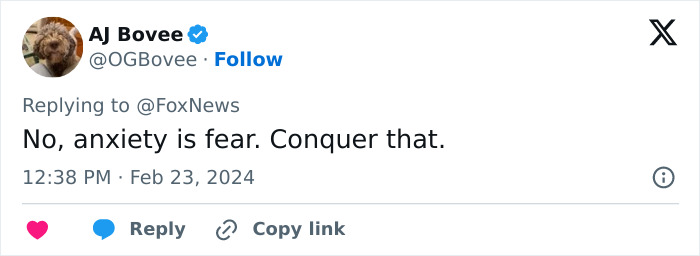
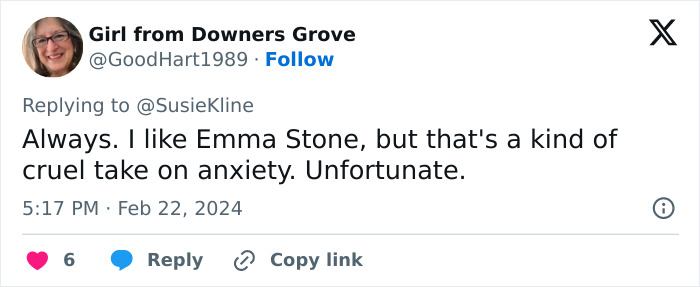
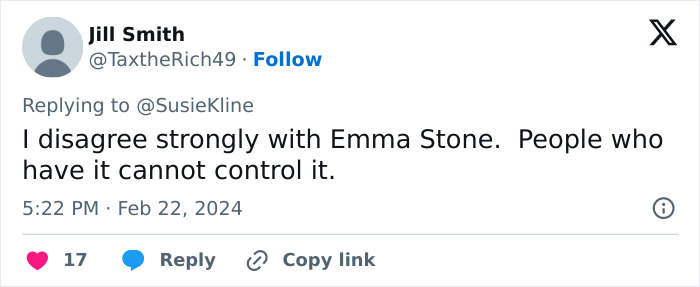
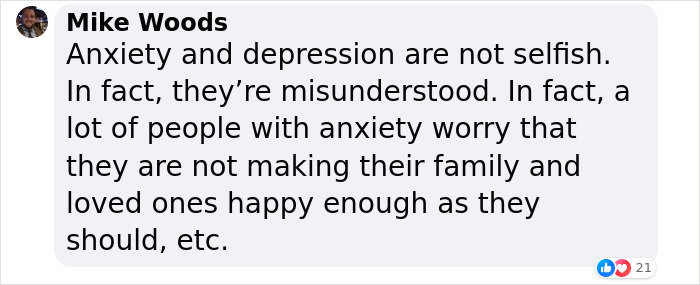

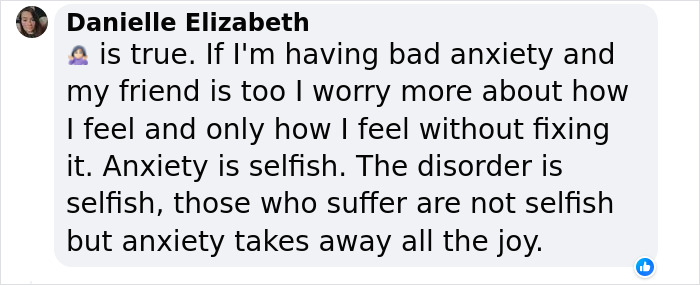







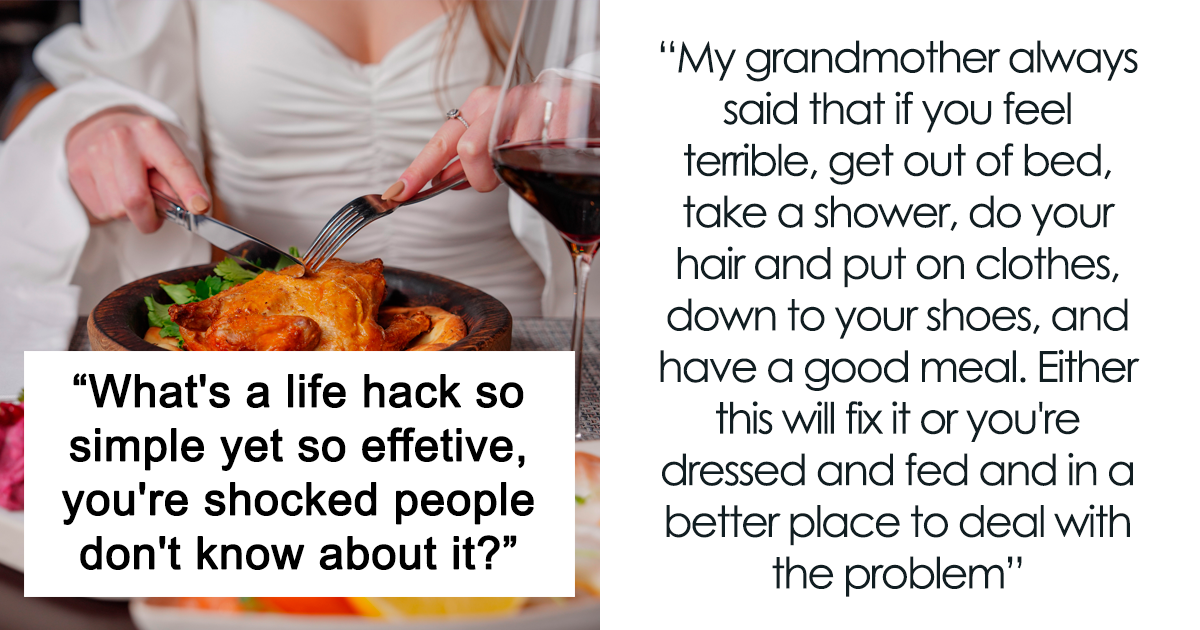





 English (US) ·
English (US) ·